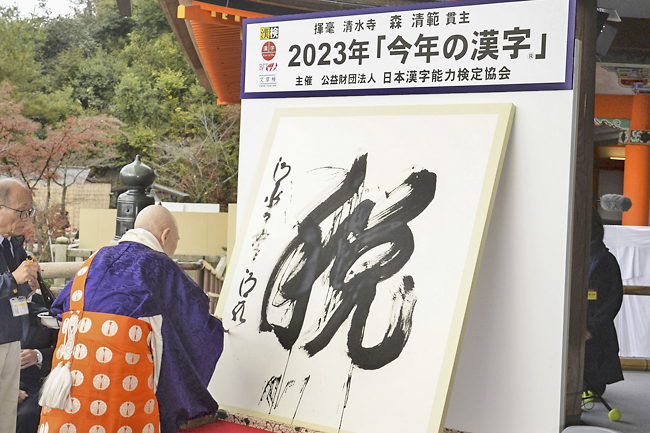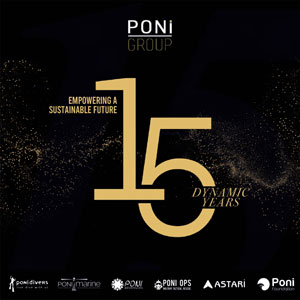AP – Many sentiments are universal. Many words are not. As 2023 ends, The Associated Press reached out to colleagues around the world for terms that emerged this year and seized or crystalised the popular mood.
Some were newsy, some cultural. A couple were kind of delightful. Whatever the language, the emotions came through. Some might consider AI, or artificial intelligence, as “the” word of 2023, while Merriam-Webster went with “authentic“ and Oxford University Press named “rizz,” a riff on charisma.
We wanted to share diverse examples of what folks in Germany call a “gefluegeltes Wort”, or “word with wings”.
PASSWORD CHILD: AUSTRALIA
The Macquarie Dictionary in Australia has named a “word of the month” all year. One was “cozzie livs”, slang for cost of living. Another was “murder noodle” for snake, both cute and accurate in a country that’s home to the world’s most venomous one.
But we’re going with “password child”, which families anywhere can appreciate. It refers to a child seen as favored over siblings because their name is used in parents’ passwords.



KITAWARAMBA: KENYA (KISWAHILI) IT WILL COME BACK TO HAUNT YOU
This was uttered by Kenyan pastor Paul Mackenzie, who was accused of leading a starvation doomsday cult that led to the deaths of more than 400 people.
He said it as people confronted him while he waited to be driven to court. The unfamiliar word appeared to be a threat, and it quickly took on a life of its own. Kenyans used it to warn others that something bad may happen to them for their actions.
The word captured the mood with the rising cost of living. With every new economic policy by President William Ruto’s administration, some Kenyans say the related term “kimeturamba” – that electing him has come back to haunt them.
SPY BALLOON: UNITED STATES
Perhaps no other term this year defined the growing wariness between the world’s two largest economies. It began, movie-like, with Americans noticing a mysterious white orb in the sky. Some watched as fighter jets circled and shot down the balloon that for days had wandered across the continental United States.
“I did not anticipate waking up to be in a Top Gun movie today,” one witness said.
China rejected allegations of surveillance and insisted that balloon and others were purely for civilian purposes. It never used the term zhen tan qi qiu, or spy balloon, and instead used qi xiang qi qiu, meaning “weather balloon”.
C’EST LA HESS: FRANCE (FRENCH) IT’S A BUMMER
Young people insist on keeping the French language plastic despite efforts, backed by law, to preserve it from foreign encroachment.
“C’est la hess” speaks to the multiculturalism of France even as some views continued to harden this year against immigration, shown by the steady progression of the far right.
The phrase is among dozens of words and expressions derived from Arabic, which those under 25 in France have made their own. France has the biggest Muslim population in Western Europe and a long history of immigration from former colonies in North Africa.
ZEI: JAPAN (JAPANESE) TAXES
In a closely watched event on Tuesday, the top Buddhist monk at the Kiyomizu Temple in Kyoto used a brush to write the kanji character of the year on the temple balcony.
The Japanese public chose “zei” to best represent 2023 amid speculation about tax hikes to fund the country’s military buildup. Under the latest national security strategy, Prime Minister Fumio Kishida’s government is pursuing a five-year plan to double Japan’s annual defence spending to about JPY10 trillion (USD69 billion).
That would make the country the world’s number three military spender after the United States and China.
BHARAT: INDIA (SANSKRIT) INDIA
When a dinner invitation sent to guests of the G20 meeting in India featured the word “Bharat”, the immediate question for many was whether the country of more than 1.4 billion people would now be called by its ancient Sanskrit name.
Many saw “Bharat” as a political move by Indian Prime Minister Narendra Modi’s nationalist government. The word resonated with Modi’s supporters, who argued it would salvage the country from the taint of colonialism.
But Muslims and other minority groups felt even more uncomfortable. The name has now been used at various international forums. But there has been no formal announcement of a name change.
QUOICOUBEH! FRANCE (FRENCH) WHO KNOWS?
This word became super popular with French teenagers this year. They use it to annoy their elders, and it doesn’t have a real meaning. It’s simple: A teen says something inaudible, hoping that parents or teachers will answer “Quoi?” or “What?” The response : “Quoicoubeh!”
Its origins remain mysterious, although Radio France suggested it was inspired by a play on words from Ivory Coast, where some respond “quoicou” to a person saying “quoi.” An AP journalist in Ivory Coast, however, said that “unfortunately”, he had never heard of this.
In any case, a word open to interpretation seems like a good way to enter 2024 and whatever lies ahead. – Cara Anna






